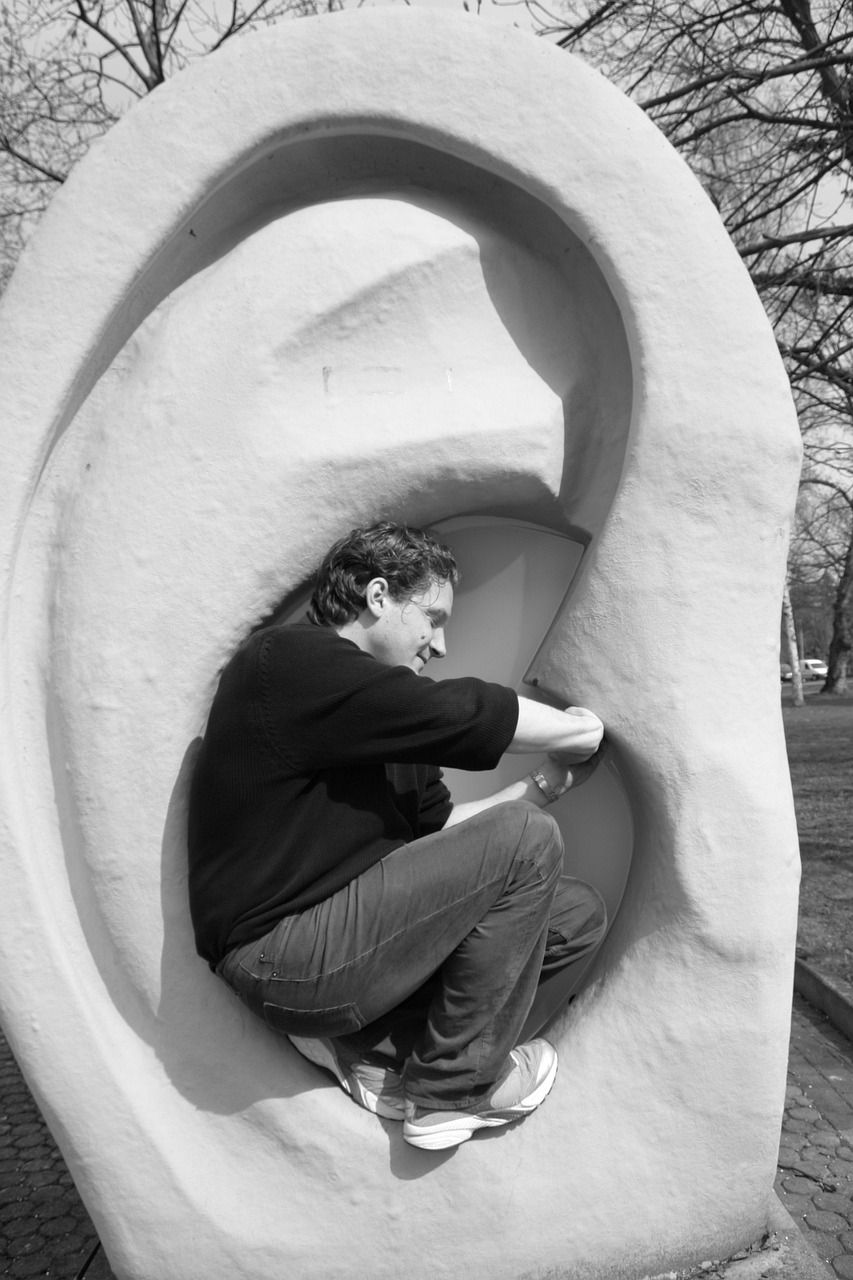How To Meditate With Tinnitus: A Guide to Finding Peace Despite the Ringing
Meditation is a powerful tool for managing stress, anxiety, and even chronic conditions like tinnitus. For those living with tinnitus—the perception of ringing, buzzing, or hissing sounds in the ears—finding ways to meditate effectively can feel challenging. The constant noise in your ears can make it difficult to focus, but meditation can be a highly effective way to manage tinnitus and improve your overall well-being.
In this guide, we’ll explore how to meditate with tinnitus and provide practical tips on how to use meditation techniques to reduce the emotional impact of tinnitus and create a sense of calm.

Understanding Tinnitus and Meditation
Tinnitus affects millions of people worldwide, causing a persistent ringing or buzzing sound that isn’t caused by an external source. While the condition is often linked to hearing loss, it can also be triggered by stress, anxiety, or prolonged exposure to loud noises. Despite being a medical condition, tinnitus can often be worsened by stress and frustration, which is where meditation comes in.
Meditation can help by promoting relaxation, reducing stress, and teaching the mind how to deal with the perception of sound more effectively. When practiced regularly, meditation can retrain the brain to focus on something other than the tinnitus sound, and this shift in focus can significantly improve your quality of life.
Step-by-Step Guide: How To Meditate With Tinnitus
If you’re wondering how to meditate with tinnitus effectively, follow these simple steps:
1. Choose a Quiet Space
Even though tinnitus may persist no matter your environment, starting your meditation practice in a quiet space can help reduce other distractions. Find a place where you won’t be disturbed, and sit or lie down in a comfortable position.
2. Focus on Your Breath
One of the simplest and most effective meditation techniques for tinnitus is focusing on your breath. By gently breathing in and out, you can shift your attention away from the ringing sound in your ears. As you breathe deeply, count each inhale and exhale to stay present.
Try this breathing technique:
- Inhale slowly for a count of 4.
- Hold your breath for a count of 4.
- Exhale slowly for a count of 4.
- Pause for a count of 4 before repeating.
This will help calm your nervous system and create a sense of peace, making the tinnitus less noticeable.
3. Use Sound Therapy to Mask the Tinnitus
If the ringing in your ears is overwhelming, sound therapy can be a helpful tool. Many people with tinnitus find that adding soothing sounds to their meditation helps mask the ringing and creates a more peaceful environment. You can use sounds such as:
- White Noise: The consistent hum of white noise can help cover up the ringing sound in your ears, making it less noticeable.
- Nature Sounds: Sounds like rainfall, ocean waves, or forest ambiance can be relaxing and provide a gentle background that makes tinnitus less intrusive.
- Binaural Beats: Some people with tinnitus find relief from listening to binaural beats, a form of sound therapy that uses two different frequencies in each ear to create a calming effect.
By introducing external sounds during your meditation, you train your mind to focus on these sounds instead of the tinnitus noise.

4. Practice Mindfulness Meditation
Mindfulness meditation is especially beneficial for tinnitus sufferers because it encourages you to acknowledge and accept the ringing without judgment. Instead of trying to block it out or resist it, mindfulness teaches you to observe the sound without emotional attachment.
To practice mindfulness:
- Focus on the present moment and allow the tinnitus sound to exist in the background.
- Notice how your body feels, the sensation of your breath, and any other sounds around you.
- Gently bring your attention back to your breath whenever your mind drifts.
This approach can help reduce the stress and anxiety often triggered by tinnitus, making it easier to coexist with the sound.
5. Try Progressive Muscle Relaxation
Progressive muscle relaxation (PMR) is another helpful technique for managing tinnitus during meditation. This method involves tensing and then relaxing different muscle groups in the body, which helps release physical tension and promotes mental relaxation.
Here’s how to practice PMR:
- Start by focusing on your feet. Tense the muscles for a few seconds, then slowly release the tension.
- Work your way up through your body—legs, abdomen, chest, hands, arms, shoulders, neck, and face—relaxing each muscle group.
- As you relax your muscles, breathe deeply and focus on the sensations in your body.
By combining PMR with your meditation practice, you can enhance your ability to relax and reduce the intensity of tinnitus.
6. Try Guided Meditations for Tinnitus Relief
If you’re new to meditation or struggling to meditate on your own, guided meditations can be a great option. There are many guided meditations specifically designed to help those with tinnitus. These often include relaxation techniques, visualizations, and mindfulness exercises aimed at reducing the stress and emotional impact of tinnitus.
Listening to a calming voice while meditating can help guide you through the process and keep your focus away from the ringing in your ears.
Additional Tips for Meditating with Tinnitus
- Be Patient: It may take some time before you start noticing significant benefits from meditation. Be patient with yourself and allow the practice to evolve over time.
- Establish a Routine: Consistency is key when it comes to meditation. Try to meditate at the same time each day to create a calming routine.
- Avoid Overthinking: If you find that you’re becoming frustrated with your tinnitus during meditation, gently acknowledge the frustration without judgment and return to your breath or chosen technique.
Why Meditation Works for Tinnitus

Meditation works for tinnitus by helping you manage the emotional responses triggered by the condition. Research shows that mindfulness meditation can reduce the perception of sound intensity and help with the emotional distress that often accompanies tinnitus. Regular meditation can also decrease anxiety and improve overall emotional well-being, making tinnitus less disruptive in daily life.
By practicing meditation, you’re not only focusing on your breath or the sounds around you but also training your mind to respond more calmly to the presence of tinnitus.
Conclusion: Finding Peace with Tinnitus Through Meditation
Learning how to meditate with tinnitus can significantly improve your quality of life by reducing the stress, anxiety, and frustration often associated with the condition. Whether you prefer focusing on your breath, using sound therapy, or practicing mindfulness, meditation can help you shift your focus away from the ringing and create a sense of calm and peace.
With regular practice, you may find that the impact of tinnitus becomes more manageable, and you can experience greater relief and emotional balance. Remember to be patient and consistent, and over time, meditation will help you not just coexist with tinnitus, but thrive alongside it.

Thanks for this insightful guide!
It’s amazing how meditation can transform the experience of living with tinnitus from something overwhelming into something more manageable.
The idea of using sound therapy alongside meditation is especially interesting,
Are there particular sounds or frequencies that seem to work best for masking tinnitus, or is it more about personal preference?
Thanks for sharing these practical tips!
Hi Benjamin
Thank you for your kind words! I’m so glad you found the guide helpful.
I completely agree—meditation can have such a profound effect on managing tinnitus. It really helps shift the focus and creates a sense of calm.
Regarding sound therapy, it’s a great complement to meditation. Many people find white noise, pink noise, or nature sounds like rainfall or ocean waves to be soothing for masking tinnitus. Frequency-wise, some find higher frequencies (such as around 6,000 Hz) help, while others prefer lower ones. It often comes down to personal preference and what feels most comfortable for you. There are also specialized tinnitus maskers that use tailored frequencies designed to be more effective for specific types of tinnitus.
It’s wonderful to explore what works best for your own needs! Thanks for engaging, and I hope these tips bring even more relief!
Kindest regards
Alan
Alan, thank you for this thorough and helpful guide on meditating with tinnitus. Your article provides excellent practical solutions, from breathing techniques to sound therapy options. I’m particularly intrigued by your mention of binaural beats as a sound therapy tool. Could you elaborate more on how specifically these different frequencies work to create a calming effect for tinnitus sufferers? This could be valuable information for readers who are considering this approach.
Eric
Thank you, Eric, for your thoughtful comment and for engaging with the topic! I’m so glad you found the guide helpful and insightful. Binaural beats are indeed fascinating as a sound therapy tool for tinnitus sufferers.
To elaborate, binaural beats work by presenting two slightly different frequencies to each ear through headphones. The brain perceives a third “beat” frequency that is the difference between the two original frequencies. For instance, if one ear hears a tone at 200 Hz and the other at 210 Hz, the brain processes a beat frequency of 10 Hz. This perceived frequency can have calming effects on the brain.
Research suggests that specific frequencies can stimulate brainwave states associated with relaxation or focus, such as alpha (8–14 Hz) or theta (4–8 Hz) waves. For tinnitus sufferers, this calming effect may help reduce the perceived intensity of the ringing or buzzing, providing relief and aiding meditation.
Would you like a more in-depth breakdown of the specific frequencies and their potential impact, or perhaps some recommendations on binaural beat tracks tailored for tinnitus relief? Let me know how I can assist further!
Best regards,
Alan